Welcoming Puberty: Having the Talk With Your Growing Child
As much as we’d like to believe otherwise, our children are constantly bombarded with explicit content. Children see and hear a lot about topics around puberty and how often it is associated with sex, infatuations, and body image. By the time children reach the age of puberty themselves, they may have vague ideas about what these things are.
However, this does not absolve parents of their responsibility of having “the talk”, or talking to their children about the changes they will experience once they start nearing puberty.
How can I be prepared for “the talk” when no one prepared me for it?
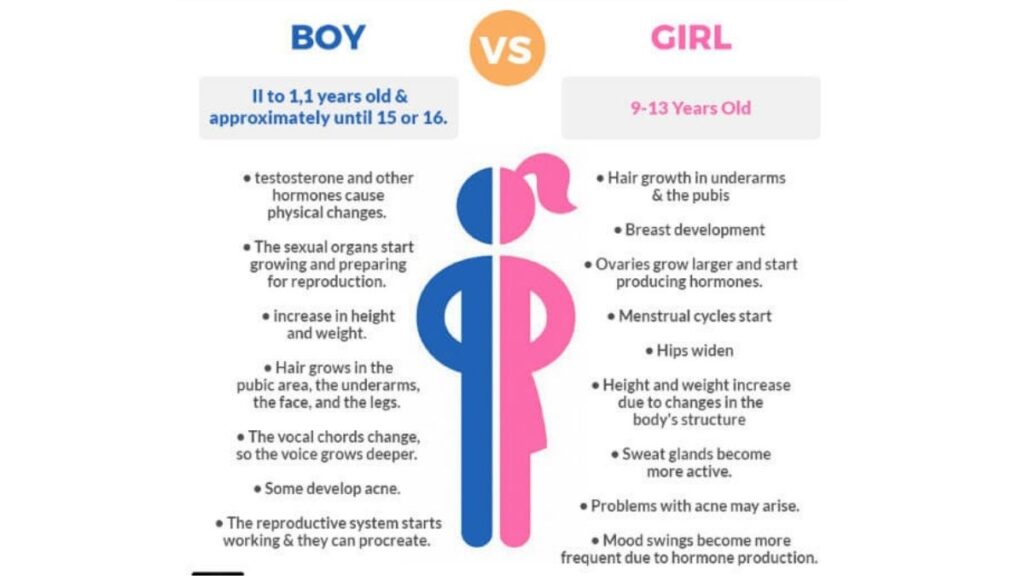
Having “the talk” is equivalent to breaking a generational cycle of misinformation and neglect. Parents today, are fortunately realizing the errors of parenting they experienced and making a conscious effort to fill in the gaps.
But before we delve into the conversation, we need to prepare ourselves. We need to be perceptive and anticipate the kind of questions kids ask. We need to be certain and be careful not to take their tone or curiosity personally.
Start talking early
Puberty amongst girls normally starts between 9 and 12 years of age. Parents should particularly educate their daughters about menstruation before they start their periods. This will help them be mentally prepared about it, when the time comes, instead of being scared and traumatized.
Educate yourself
Before you answer your child’s questions, research as much as possible. If you think you will be uncomfortable, practice answering questions in the mirror. Your child will pick cues from your confidence and be brave enough to engage in further conversations.
The NHS UK website has comprehensive details about the early and later stages of puberty and the associated changes in boys and girls. Moreover, Sex Ed Rescue is a very useful website, with access to different courses. It has a list of books you can read yourself and also give to your children. There are also videos you can watch with your child together.
Be reassuring
Puberty is a very confusing stage for the child, where they are already feeling alone and insecure. At this time, children are becoming conscious of how they look, and by letting them know that every other child of this age is feeling the same, you can help them relate better.
We can also let our children know that everyone experiences different changes associated with puberty. If they have acne, and their friends don’t, it doesn’t mean they need to be concerned about it. There are counter remedies to manage the physical and psychological symptoms of puberty.
It’s NOT a one-time conversation
The most intense conversations with your little ones will be during a car ride; when you’re tucking your child in at night; or even when your child comes to the kitchen while you’re cooking. Children feel comfortable when they believe the focus is not on them. Be ready to be available then.
Children learn best by having small, frequent conversations. This is information they will be processing, and once they are ready to process more information, they will come to you again. The key is repetition and patience. Start off with the basics and then keep on adding more details. Children are only interested in what seems relevant to them at that time. So be ready for their impatience.
Use the correct vocabulary
We can help our children learn the correct words for body parts and genitalia even when they are young. Giving names to the penis like ‘pee pee’ or ‘willy’, or any other vague labels may confuse them; especially when they may be trying to explain what is going on to their body during puberty. If you are embarrassed, you can ask them to use the term “private parts”, and why they are private for a reason.
Use the correct body part language for genitals. For girls, the area surrounding the vagina is the vulva. For boys, they should know they’re called testicles and penis.
Introduce values associated with sex
The way our children may be introduced to sex and sex-ed is very different from how we learned about it. Talk to your children before they learn about it from elsewhere. Explicit sources may associate sex with promiscuity or unrealistic demands from a partner. Help your child understand that it is an act allowed between consenting partners who are married, and in some cases, maybe not.
For younger children, let them know it is something that mommy and daddy do because they love each other. In further conversations down the line, you can discuss with them how it can relate to intimacy, caring, love, and respect for their partners as well as themselves.
Girls and boys will go through similar emotional and psychological changes, but different physical changes
Help your child realize that both girls and boys their age are experiencing similar emotional and social changes. However, physical changes will be different.
Boys need to know that females (or girls) going through puberty, will have physical changes like periods and breasts, that will become physically apparent. For boys, though most of the physical changes may not be visibly apparent, girls still need to be educated about them.
Having the talk with your son
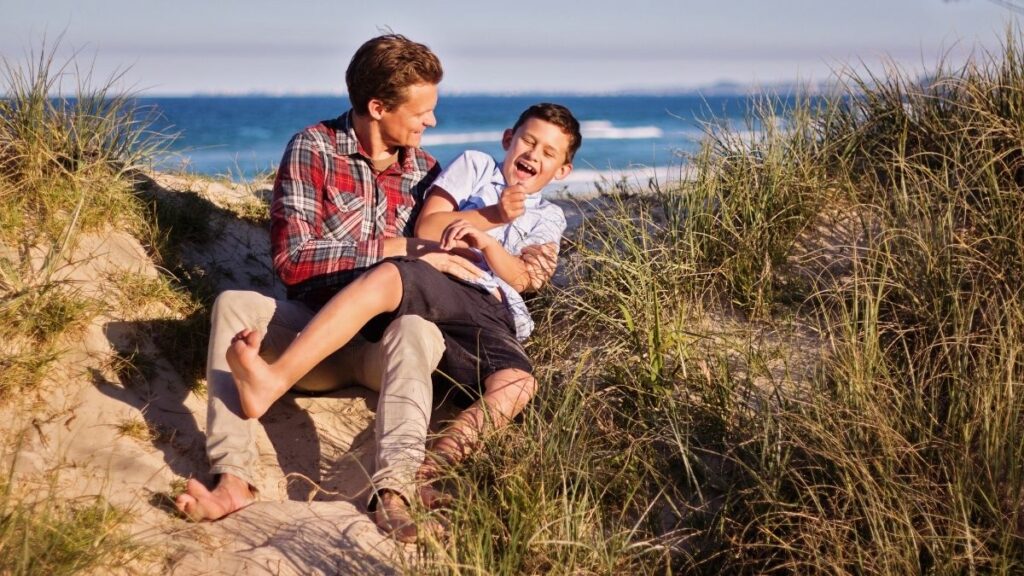
As a parent, you can start answering your boy’s questions whenever they come to you. Since children are exposed to all kinds of information, your 6-year-old may come to you and ask what a “boner” means after he read that in a comic book. Instead of shutting your child down, and telling him, that he’s too young, you can calmly explain to him that it’s when his penis becomes hard and erect as a consequence of excitement. Since the child is young you can choose to make the conversation short, and let him know that when he gets older you can tell him more.
Encourage curiosity. But also keep an eye out for the changes associated with puberty. That is ideally the best time to talk to your son. These changes can start happening anytime around the age of 9. These changes then take around 2 to 5 years to finish.
Having the talk with your daughter

Like boys, start talking to girls early, especially about menstruation. Some of them start showing signs of puberty as early as 8 years old. On average, girls get their first period at the age of 12 or 13. But they may even get it as late as 16 and that is also normal.
Most girls want practical guidance when it comes to putting on a bra, or being prepared with a pad in her bag if she gets her period at school. It is also possible that your daughter’s 8-year-old friend is already wearing a training bra, which is making your daughter conscious about her body. Empathize with her and try to realize at with the onset of puberty comes vulnerability associated with body image. Assure your daughter that everyone has a different pace of growth. Help her become comfortable in her body, and if you have a deeper bond, suggest different ways she can choose and revamp her wardrobe if she feels like it.
What questions can my child ask?
Chances are, your kids will ask you a LOT of questions and you may have to have a lot of awkward conversations. Don’t shy away from them. You could continue these types of conversations depending on the child’s interest. Or, strike it up again the next time a question comes around or you want to keep the conversation going.
What do I do if my tween asks, “what is sex”?
While it may be easy to dismiss the question, “where do babies come from?” when it comes from a 4-year-old, questions about sex from your tween should not be ignored.
You don’t have to go into the details. Choose short and logical answers instead of giving graphic and elaborate details. The objective is to establish trust with them to the extent that they see you as their primary source of information always.
Charyn Pfeuffer is a writer who specializes in sex-positive topics. In her article, “How to Answer Just About Every Sex Question Your Child Could Ever Ask, According to Experts”, she has included a comprehensive list of all the possible questions your child can ask and the possible answers you can give.
How do I talk to my child about pornography?
If your child has access to a phone, tablet, or computer, it is very important that you talk to your child about online pornography and safety. Although there are multiple ways to filter content and consciously monitor your child’s online activity, there is a possibility that they will come across sexually explicit images and videos at some point or another.
As much as we’d like to never talk about it with our children (because we would like to believe our children will never indulge in such activities), it is important that we explain to our kids how to stay safe online just like we teach them how to stay safe on the road.
For younger children, we don’t need to go into obvious details. We can ask them that if they come across images or videos of naked people, they should immediately hand over the device they have to the parent. When we will tell them it is inappropriate for their age, they will register it as something they need to be vigilant about and inform an adult accordingly. You can let them know that such content is porn which is not healthy (and forbidden). At this age, your focus can be on instilling values associated with watching porn.
Once the values have been established, help your child understand that they will not lose their internet access if they come across such content. Let them know that their job is to be vigilant and inform you if such images or videos pop up. It has got nothing to do with their liberty to use the internet for playing games or watching shows.
Help them understand that porn is a misconstrued depiction of sex. If you keep the conversations going about what a healthy, sexual relationship should look like, your child will question themselves about the authenticity of such videos and images. By talking to our kids, we’re giving them the skills and the knowledge to be able to manage porn appropriately, to be able to make good decisions about whether they want to watch it or not.
We need to help our children understand that porn sets inappropriate and unrealistic sexual expectations from their partners. In this way, porn is damaging to relationship development. Children need to know that sex is a small but important part of a relationship, but it is not the whole relationship.
Then, even if your child is curious and looks up porn, they will look at it objectively and go, oh, I don’t really think that’s what happens or that’s not what I want to do with my partner.
There is also the option of using parental controls. However, they are only effective till a certain age. When children grow up, parental controls not only block pornography, they also block conversations. Children assume that it is a conversation that cannot take place with parents, so they turn to their friends or any other source that can help them satisfy their curiosity.
Therefore, the conversation is the first step, the software can be the second step, and then continuing to check up on them can be the third step.
Before having the talk: Be prepared for their questions!
Before we delve into the conversation about puberty and associated changes and decide to have the talk, we need to prepare ourselves. We need to be perceptive and anticipate the kind of questions our children may have. It is always better to start talking to your children early and answer their questions as they come. Such conversations are usually unexpected and short. So be prepared to have answers ready for their questions at unexpected times. The objective is to establish trust with them to the extent that they see you as their primary source of information always.
If your daughter is asking you why she has tender lumps beneath her nipples, tell her not to worry as it’s normal to observe these lumps when breasts begin to grow. The tenderness and the firmness go away itself after some time.
Your daughter may ask why her breasts are so large or so small. Rest assured, it’s normal for girls to ask this as they grow up. Just let her know that breast size can vary from girl to girl and that they develop at different times and rates.
Just like penis and breast size vary from person to person, the amount of pubic hair also varies, and so does the time that is taken to grow them. Some teens get them later than others.
If your son thinks that the size of his penis is small, tell him that the size can vary from person to person and it can change as they grow. Moreover, the size difference is less when penises are erect compared to when they are not.
Sometimes, even boys can get temporary breasts during puberty because of changing hormones. This is called gynecomastia and the breasts usually disappear on their own within a couple of months as hormones stabilize.
Children mostly confuse deodorants with perfumes. You should tell your child that the spray that you put in your armpits is called deodorant and that grown-ups use it so their armpits don’t stink.
Like all changes related to hormones and puberty, menstruation can start at a different time for every girl. Some girls move through puberty faster than others, and some simply start a little later. Moreover, girls get their first period around 2 years after displaying the first few signs of puberty. Some girls may not get their period till after they are 16 and some may get them as early as 9. It can be different for everyone and it’s normal.
Tell your child that mommy is fine. It’s normal for women to bleed from their vaginas. The white thing is a pad and it helps soak up the blood so that it doesn’t stain clothes. It’s like a special bandage.
- Welcoming Puberty: Having the Talk With Your Growing Child - March 13, 2022
- Raising Teenagers in The Wake of COVID-19: How is Social Media Helping Teens Cope? - December 3, 2020

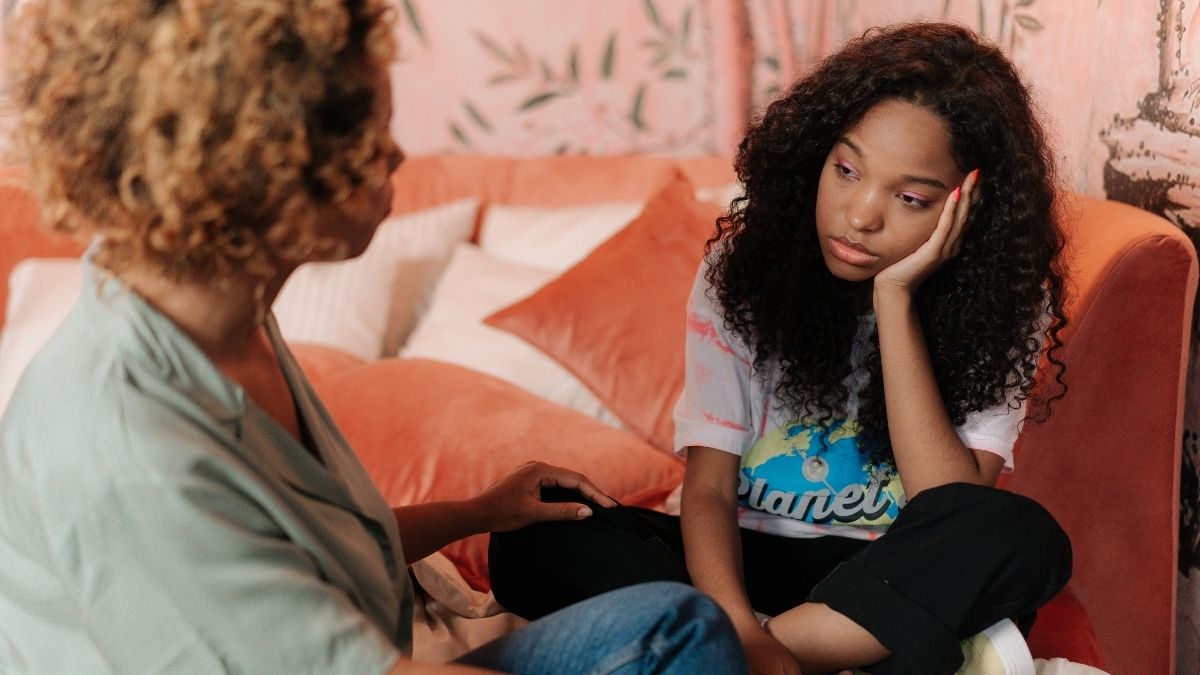
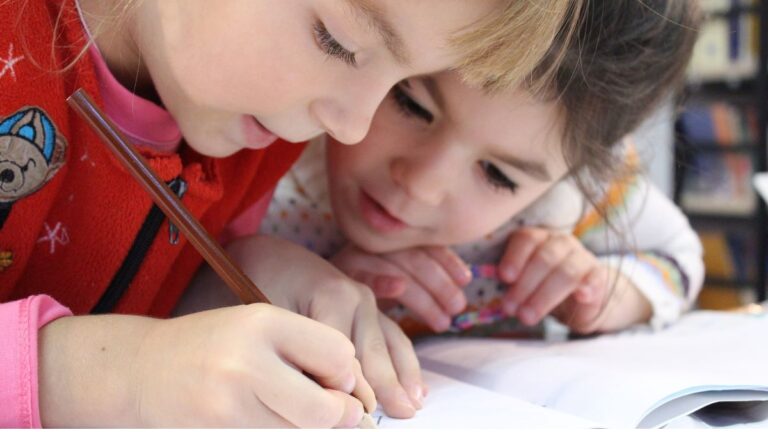




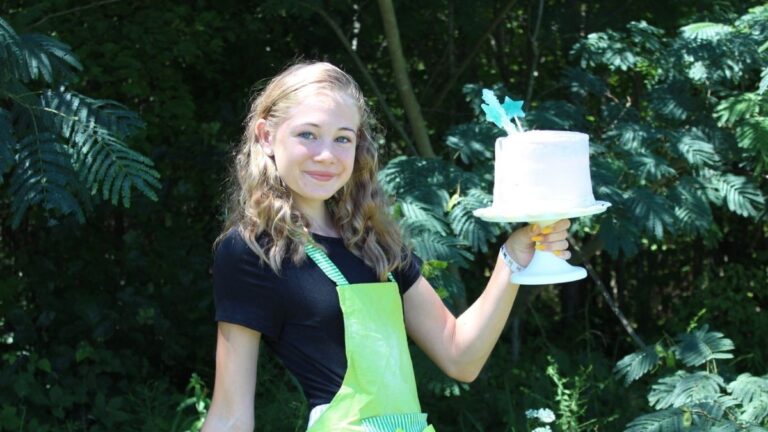
Really great resource. You touched on so many points I’ve been trying to express to some of my friends and family members.
One thing I always say is “if you don’t talk to your kids about sex, someone else will out there. And what they will learn will probably not be what you want them to”.
The better you can educate your kids about the puberty changes they will face and why they happen, the more prepared they would be, and won’t have to prematurely experiment and learn it the hard way.
THIS IS THE POST I have been looking for! So important to have guides for these conversations before you begin. Thank you for sharing your experience and knowledge on the topic. It’s so good to know you’re not alone!
Thanks for these tips. I have a 9yr old boy and we’ve pretty much got him covered. But we want to educate him on some things that happen to girls and I’ve been looking for ways to explain that. That way he’s aware if his classmate gets her period at school and he won’t freak out.